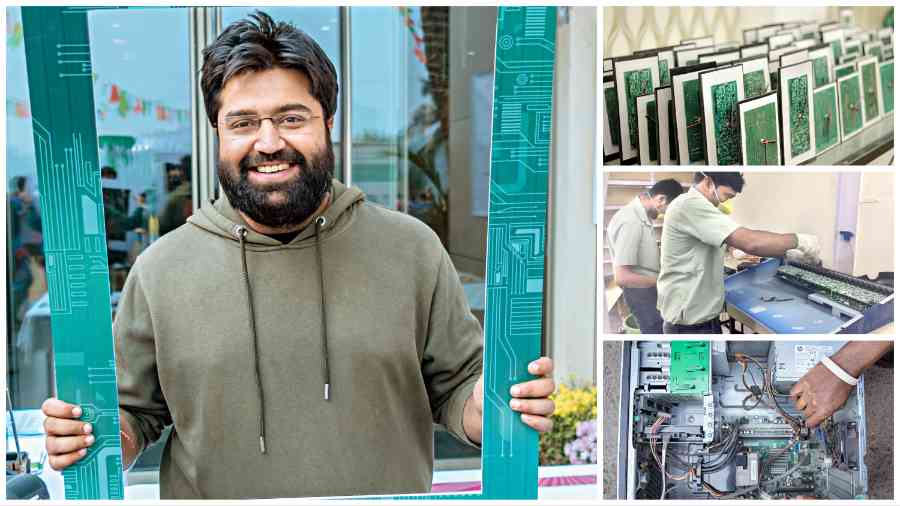The concept of sustainability and recycling is not foreign to India. For hundreds of years, people in the country have been brought up in the culture of reuse, reduce and recycle. Growing up in an Indian household, we have all observed small practices of sustainability in our homes — reusing empty containers to store spices, collecting bags and packets, using newspapers for packaging, and so on.
However, due to rapid urbanisation, increase in purchasing power and digitisation — the quantity of waste being generated has grown phenomenally, so much so that now waste management and proper disposal of waste is one of the most serious concerns faced by our country. One such waste stream that has shown maximum growth in the last decade is electronic and electrical waste, commonly known as e-waste.
Today, India has 800 million smartphone users. We are the third largest producer of electronic and electrical waste in the world, generating 3.84 million tonnes of e-waste each year. With the rapid adaptation of technology and increase in the dependence on electronics, this figure will only go up.
Unlike plastic waste, electronic waste seems to have much less awareness especially when it comes to the hazards of improper disposal of electronic items. Technology is changing every day and so fast that the average lifespan of electronics has reduced substantially. Earlier, our Nokia handsets would last for six to seven years, whereas now an individual changes his smartphone every two years on an average.
Electronics are mainly made of four components — metal, plastic, glass and hazardous substances which include lead, cadmium, phosphor and mercury. Even today, 95 per cent of this waste is managed by the informal sector reaching landfills and water bodies and results in loss of resources, release of toxic gases into the air, and severe impact on human health.
In India, the rampant monopoly of the informal or unorganised sector, also known as the kabadiwalas, is one of the most followed practices in almost every household. Unethical processes such as acid bath and chemical leaching is used to extract precious metals from these items that result in environmental damage. The informal sector is also one of the largest recruiters of child labour. They employ young children to extract copper wire from electronic gadgets with their nimble hands. There is an immediate need to address this issue.
With the advent of the new rules on e-waste management in 2022, the Central Pollution Control Board has made the handling of e-waste stricter in the country. According to these rules, manufacturers of electronics are essentially responsible for ensuring proper and safe disposal of e-waste. The involvement of these brand owners have made the process of e-waste collection and recycling more systematic. In the last decade, many waste management and recycling facilities have been set up across India to help fight this problem of improper disposal of e-waste. Authorised recyclers have machines that enable resource recovery and removal of harmful chemicals without causing any environmental damage.
Recyclers of electronic and electrical waste have been working tirelessly towards changing consumer behaviour towards e-waste disposal. Installing e-waste bins across the city, conducting workshops on safe e-waste recycling and offering door-to-door pick-up facilities have made it easier for individuals and organisations to dispose of their e-waste.
As India transitions from a linear to a recycling economy, awareness about conscious practices of recycling have become quite common. Even though this transition to a circular economy is complex because it depends on a variety of factors including better awareness, a defined institutional framework, waste management infrastructure, and stringent rules and regulations, India is slowly moving towards the sustainability space.
In the last five years, we at Hulladek Recycling, have recycled electronic waste from 10,000-plus households across the country. Any kind of change takes time, but we have observed a stark growth in consumer awareness about waste disposal and their willingness to choose sustainable alternatives.
We hope that in the coming years, recycling does indeed become a lifestyle in India.
Nandan Mall is the founder and CMD of Hulladek Recycling
